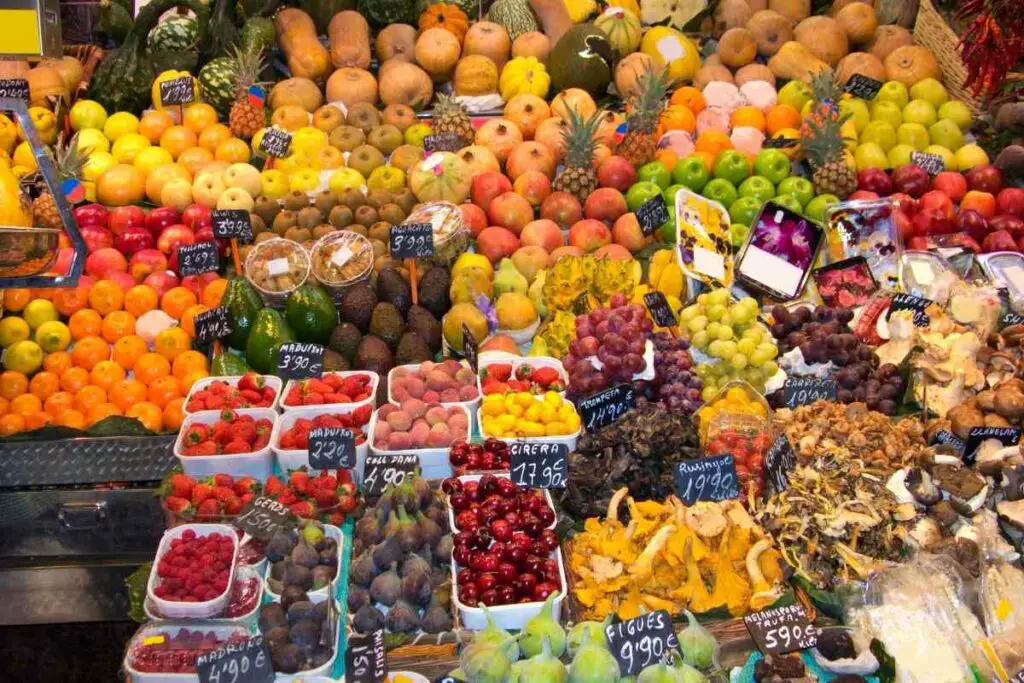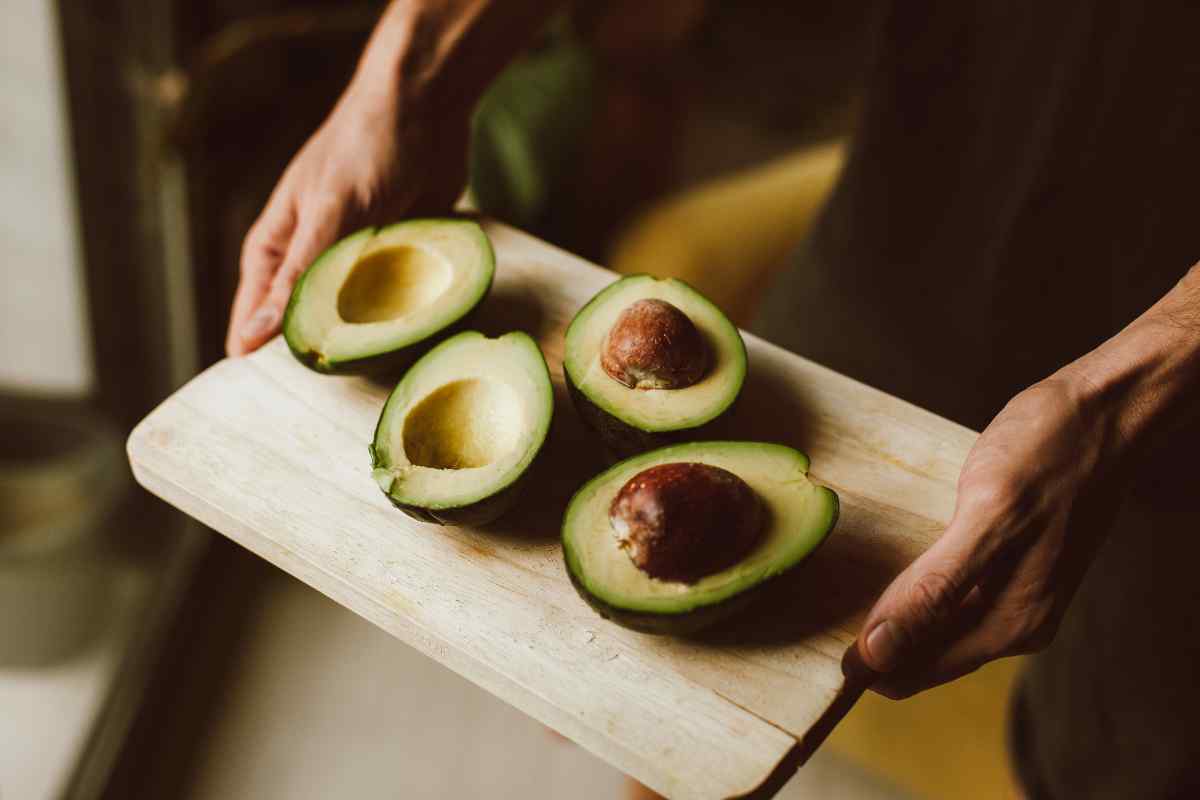You can tell that an orange has gone bad if its appearance changes. There might be discolored areas on the rind or even signs of mold. It might also feel squishy or smell funny. You’ll want to throw it out if you think it’s gone bad.
Oranges are a great way to get more vitamin C in your diet, but you must ensure you eat the fruit before it goes bad.

This article covers all the signs that your fruit expired, plus how long you can expect it to last.
You must store your citrus fruits properly, so you’ll want to keep reading.
Table of Contents
Do Oranges Go Bad?
Oranges, like other fruits, can go bad.
Some people mistakenly believe they don’t because you need to peel them to get to the fruit.
Most whole oranges last a few weeks when left out at room temperature, although you can take some measures to ensure they don’t go bad quickly.

Oranges can go bad, and eating an expired one could be harmful. You’ll want to know the signs if you often keep oranges in the house.
What are the Signs of an Expired Orange?
Eating an old orange has the potential to give you food poisoning, so it’s something that you should avoid at all costs.

If you keep oranges at home, you’ll want to recognize the following signs that it’s gone bad.
- The fruit’s appearance changed: You can see changes on the outside of the orange. For instance, you might notice mold or specks on the rind. Always throw out any fruit with mold— peeling the rind off the orange won’t be enough to make it safe to eat if it’s old.
- The orange feels different: You can also tell that an orange went bad if it feels squishy or dry when you touch it. You should throw away fruit that doesn’t feel the same as when you bought it.
- The orange smells different: The orange smelling off indicates you should throw it away. It might smell moldy or lose its citrus smell.
- The oranges taste strange: Lastly, if you bite the orange and it tastes bad or off, then don’t eat the rest of it. They might taste sour or fermented. The texture of the fruit might also feel weird to eat. These are all signs it’s not good anymore, so don’t go for another bite.
Overall, you’ll want to closely inspect the oranges you have before eating them, especially when you suspect they’re old.
Not only would an expired orange taste bad, but you could also get sick from eating it.
It’s better not to take that risk if you think they’re starting to go bad.
What Happens if You Eat an Expired Orange?
Eating a sour orange can make you ill and expose you to harmful bacteria, even if you peel it first.
Some symptoms of a foodborne illness include fever, vomiting, and diarrhea, so it’s best not to eat any expired fruits.

If the fruit’s rind looks strange, but the inside seems fine, you shouldn’t eat it. Often, the flesh of the fruit expires, but only the outside shows these changes.
All citrus fruits can make you sick after expiring, so you’ll want to take care to track when you bought them.
However, if you eat an expired orange and get sick, you’ll want to rest and wait for the symptoms to pass before you try eating again.
You may also want to contact your doctor if you suspect you have severe food poisoning.
How Long Do Oranges Stay Good?
Whole oranges stay good longer than cut or peeled ones.
They also last longer when you keep them in the fridge instead of at room temperature.
So, you can expect a whole orange in the refrigerator to last about a month before it goes bad, while a cut orange will only keep for three days in the fridge.

It won’t last longer than a day at room temperature.
When you cut an orange, the moisture starts to evaporate from it immediately.
They can dry quickly, causing them to spoil faster. If you want your citrus fruits to last as long as possible, you must avoid peeling them before storing them.
You can get your oranges to last about one month in the fridge if you practice suitable storage methods.
How To Best Store Oranges So They Last?
You have two primary methods for storing your oranges.
First, you can leave them out at room temperature. Most people do this when they expect to eat the fruit within a few days of buying it.

Second, you can put the fruits in the refrigerator. They’ll last a lot longer there.
If you leave them out, you don’t need to take any additional steps. Just put the oranges in a basket or bowl, then leave them somewhere you’ll eat them.
When you store oranges in the fridge, you may want to put them in the crisper drawer or in a container to help keep them fresh and juicy.
However, if you’ve peeled or cut the oranges but don’t want to eat them, you’ll need to store them in an airtight container.
You can safely keep these fruits in the fridge for around three or four days. You’ll want to freeze them if you can’t eat them sooner than that.
Frozen oranges last six months, so you’ll have plenty of time to eat them.
Lastly – You can also juice all your oranges, then store the juice in a container in your fridge. The liquid stays fresh for a few days, but you can also freeze it to last much longer. Plus, orange juice still contains plenty of nutrients and vitamin C, making this an excellent option for many people.
How Do You Choose a Fresh Orange at the Store?
You’ll want to try to get the best, freshest oranges from the store, so they don’t go bad too quickly after you ring them home.
The best oranges feel heavy and are firm; you shouldn’t be able to squish them very much.
They also have full, solid color on their rinds. The color doesn’t need to be bright, but it should be consistent over the entire piece of fruit.

Lastly, the peel is also reasonably smooth to the touch.
If the orange feels soft, bruised, or has specks on it, you don’t want to buy it.
These could be signs it’s going bad or starting to grow mold. Oranges in this state won’t last you very long, even if you do your best to store them properly.
What Do Unripe Oranges Look Like?
Unripe oranges start out light green, then become brighter in color as they ripen.
It’s easy to tell when they’re unripe because they’ll be very dull or light in color.

You shouldn’t eat unripe oranges and wait for them to mature. You accelerate the ripening process by leaving the fruit at room temperature.
The orange will feel heavy and smooth when it’s perfectly ripe for eating. They’re juiciest at this stage too.
When waiting for an orange to ripen, you must ensure it’s not in direct sunlight. The sun can cause ripening to accelerate and makes the fruit go bad before you can eat it.
How To Tell What an Orange Will Taste Like?
Did you know that you can tell whether an orange will taste sour or sweet before you peel it?
It’s easy to do, too!
All you need to do is scratch the rind of the orange with your nail or a butter knife. Hold it up and smell the scratched area.
The fruit should be sweet if you smell a more pungent orange citrus scent. If you’re not smelling anything, it will taste more sour, but that doesn’t mean it’s gone bad.
All In All – If you prefer a specific taste to your oranges, you can use this method.
What To Do With an Expired Orange?
After an orange expires, you shouldn’t eat it.
However, that doesn’t mean you need to feel like you’re wasting it.
First, you can try to use a food dehydrator to dry out cut slices of orange.
From there, you can make them into a garland or decorations. They smell lovely and are perfect for decorating during the holiday season.

Next, you can also use them to make a stove potpourri.
Start by combining orange slices with cinnamon, cloves, and water in a pot on the stove. You can add other fruits, too, including apples or cranberries.
Then, heat your mixture on low heat for three hours. You will need to supervise this project, so don’t leave the kitchen when making stove potpourri!
The stove potpourri smells delicious, even with expired oranges. However, you shouldn’t do this with deteriorating or moldy ones.
You’ll also need to add more water to the pot as it evaporates, ensuring the ingredients are never uncovered. Overall, this method works great for using old oranges since you don’t have to eat them.
Conclusion
4 key ways of recognizing your orange has gone bad: the fruit’s appearance changed, the orange feels different, the orange smells different, and the oranges taste strange. You’ll want to closely inspect the oranges you have before eating them, especially when you suspect they’re old
You can expect a whole orange in the refrigerator to last about a month before it goes bad, while a cut orange will only keep for three days in the fridge. If you suspect your orange has been stored for this time, take the previous 4 steps to recognize your orange has gone off.
- How to Dry Basil Leaves: A Professional Guide
- Is an Avocado a Fruit or Vegetable? Simple Answer and Explanation
- Does Pineapple Have Seeds? Exploring the Anatomy of Pineapples
- Blooming Through Winter: Can I Grow Vegetables Indoors in the Winter?
- What Can You Grow in a Greenhouse All Year Round: A Guide to Year-Round Greenhouse Gardening
- Are Blueberries Blue? Debunking the Myth of Their Color
















